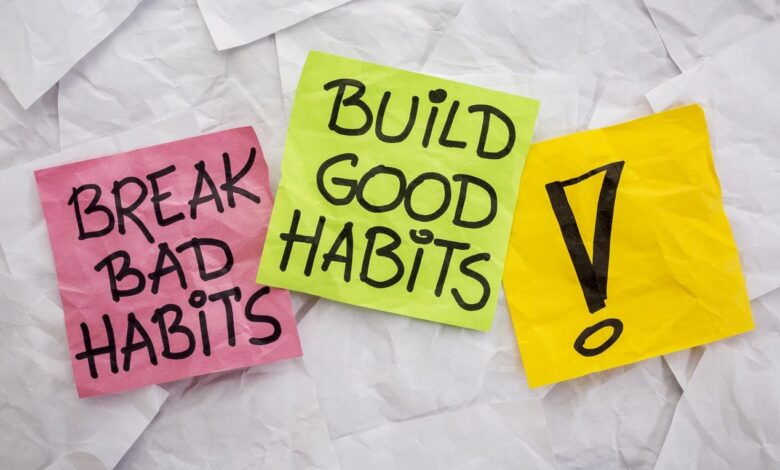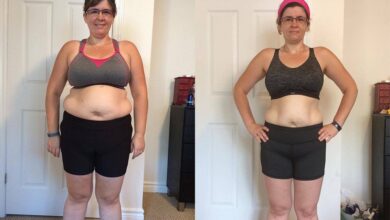
Losing weight doesn’t always require expensive diets, extreme workouts, or hours in the gym. Sometimes, the real secret lies in small, consistent changes you can blend seamlessly into your busy professional lifestyle. If you’re working long hours, juggling meetings, or stuck behind a computer most of the day, this guide will walk you through practical, realistic, and science-backed daily habits that can help you achieve and maintain weight loss. Think of it as a roadmap designed for professionals in Africa, the United States, Europe, and beyond—where time is limited, but the need for health and fitness is non-negotiable.
In this article, we’ll explore habits that not only help you shed weight but also boost productivity, improve energy levels, and support long-term health. By the end, you’ll realize that weight loss isn’t about depriving yourself—it’s about empowering your daily routine.
Read Also How to Lose Weight with Daily Habits for Busy Professionals
Why Daily Habits Matter More Than Diets
When it comes to weight loss, most people chase diets, detoxes, or “30-day miracle plans.” But here’s the truth: those quick fixes rarely stick. Your body thrives on consistency, and it’s your daily choices that make the biggest impact.
For professionals, the word “habit” is golden. Habits don’t demand mental energy once they’re ingrained. Imagine automatically reaching for water instead of soda, taking stairs instead of the elevator, or eating a protein-packed breakfast without overthinking. These little decisions stack up over weeks and months, quietly working in your favor.
Instead of stressing over “what not to eat,” the secret is to create automatic routines that align with your weight-loss goals. If you’re in Lagos, London, or New York, the science is the same—your habits determine your waistline, not crash diets.
1. Start Your Day with Hydration
Water is your body’s fuel. Drinking water first thing in the morning jumpstarts your metabolism, supports digestion, and keeps cravings in check. Most professionals confuse thirst with hunger and end up snacking unnecessarily. Carrying a reusable water bottle to work helps you sip consistently throughout the day, preventing dehydration that often leads to fatigue and overeating.
Pro tip: Add a slice of lemon or cucumber for natural detox benefits and a refreshing taste.
2. Eat a Protein-Rich Breakfast
Skipping breakfast may feel like saving calories, but it often backfires. A balanced breakfast with protein (like eggs, Greek yogurt, or beans) helps stabilize blood sugar and keeps you full longer. Professionals who eat protein-rich breakfasts report fewer mid-morning cravings, sharper focus, and sustained energy through back-to-back meetings.
High CPC keyword tie-in: “Healthy breakfast ideas for weight loss” is one of the most searched and monetized terms in the U.S. and Europe.
3. Plan Your Meals in Advance
If you don’t plan your meals, chances are your environment will dictate what you eat. For professionals, that often means fast food, vending machine snacks, or sugary lattes between deadlines. Meal prepping—whether it’s batch-cooking rice, chopping vegetables, or portioning lean proteins—saves you time, money, and calories.
Tip: Dedicate Sunday evenings to prepping. Even two hours of planning can save you five days of regret.
4. Practice Portion Control
You don’t need to cut out your favorite foods. The trick lies in controlling portions. Professionals can’t always avoid lunch buffets or after-work dinners, but you can choose smaller plates, eat slowly, and stop when 80% full.
A simple analogy: Think of your stomach like an inbox. If you overload it, everything slows down. Keep it organized, and you’ll function better.
5. Incorporate Movement into Your Workday
Sitting is the new smoking. Research shows that long sitting hours increase the risk of obesity, diabetes, and heart disease. Professionals should integrate “micro-movements” into their day: take walking meetings, stretch during breaks, or use standing desks.
Even a five-minute walk after lunch aids digestion and prevents afternoon sluggishness.
6. Smart Snacking Over Mindless Eating
Snacking isn’t the problem—it’s what you snack on. Replace chips and cookies with nuts, fruit, or yogurt. Keep healthy snacks at your desk so you’re not tempted by vending machines. Professionals can also save money by bringing homemade snacks, which are both healthier and budget-friendly.
7. Master Stress Management
Stress leads to emotional eating, late-night cravings, and weight gain. Professionals often use food as comfort during stressful deadlines. Instead, practice mindfulness, deep breathing, or short meditations. Replacing stress-snacking with healthier coping mechanisms like journaling or quick walks can save you thousands of calories per month.
8. Prioritize Sleep Like a Business Meeting
Sleep is non-negotiable. Lack of rest slows metabolism, increases cravings, and leads to poor decision-making around food. Professionals should treat sleep like an important meeting—schedule it, protect it, and never cancel it. Aim for 7–8 hours nightly.
Tip: Avoid caffeine after 3 p.m. and keep your phone away from the bed.
9. Reduce Sugary Drinks
Sugary sodas, flavored coffees, and energy drinks are silent weight gainers. One can of soda equals nearly 10 teaspoons of sugar. Switching to water, herbal tea, or black coffee saves you hundreds of calories daily. For professionals in hot climates like Africa, cold water can even give a slight metabolic boost.
10. Practice Mindful Eating
Mindful eating means being fully present when you eat—chewing slowly, savoring flavors, and listening to your body. Professionals often eat while replying to emails, scrolling on phones, or attending virtual meetings. This disconnect leads to overeating. Dedicate 15 minutes to meals without distractions, and you’ll naturally consume fewer calories.
11. Limit Alcohol Intake
Happy hours and networking events can add hundreds of “liquid calories.” Alcohol also lowers inhibitions, making you more likely to indulge in junk food. Professionals aiming for weight loss should limit alcohol to special occasions and opt for lighter options like red wine or low-calorie cocktails.
12. Use Technology for Accountability
Apps like MyFitnessPal, Fitbit, or Apple Health help track calories, steps, and progress. For busy professionals, these apps act like virtual coaches, reminding you to move, hydrate, or log meals. The data keeps you accountable even during hectic schedules.
13. Don’t Skip Lunch Breaks
Working through lunch may look productive, but it harms your metabolism and leads to overeating later. Professionals should use lunch breaks to refuel, recharge, and reset. Eating balanced meals at consistent times helps regulate metabolism and prevents late-night hunger attacks.
14. Build a Support System
Accountability partners—whether coworkers, friends, or online communities—make weight loss more sustainable. Professionals thrive in collaborative environments, and the same applies to health. Share goals, celebrate wins, and push each other during setbacks.
15. Consistency Beats Perfection
Weight loss is a marathon, not a sprint. Professionals often seek “perfect plans,” but real progress comes from consistent, imperfect effort. Missing a workout or eating dessert isn’t failure—it’s balance. What matters is getting back on track the next day.
Think of it like your career: one missed deadline doesn’t define you; your overall performance does.
Conclusion
Weight loss for professionals doesn’t require fad diets or unrealistic fitness programs. It’s about weaving small, sustainable habits into your daily routine. From drinking water and sleeping well to planning meals and managing stress, these daily habits form the foundation of lasting health.
If you’re serious about results, don’t wait for the “perfect time.” Start today. Each small action you take compounds into long-term success, much like your career achievements. Remember, health is the best investment you’ll ever make.
Read Also Best Weight Loss Workouts for Home: Proven Fat-Burning Exercises Without a Gym
FAQs
1. Can professionals really lose weight without going to the gym daily?
Yes. Walking, micro-movements, and mindful eating can help professionals lose weight without daily gym visits.
2. What is the simplest daily habit for weight loss?
Drinking enough water is one of the easiest and most effective habits to kickstart weight loss.
3. How do I avoid overeating at business lunches?
Practice portion control, eat slowly, and prioritize protein and vegetables before carbs and desserts.
4. Can lack of sleep really affect weight loss?
Absolutely. Poor sleep increases cravings and slows metabolism, making weight loss harder.
5. How long before daily habits show results?
With consistency, most professionals notice changes in energy, focus, and weight within 6–8 weeks.




One Comment